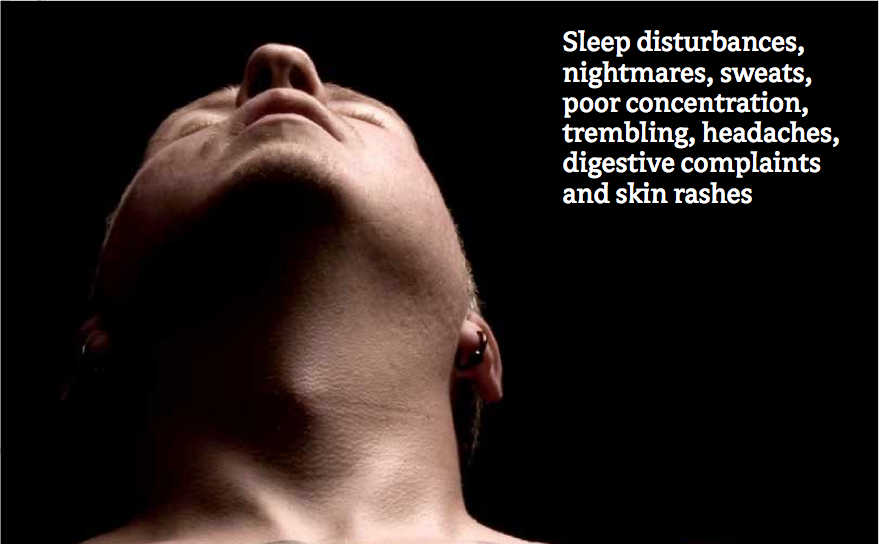People like me don’t get traumatic stress!
Dave* served in the Falklands and Northern Ireland and has “been there, got the t-shirt.” In his second career as a security professional working overseas, he took part in countless high-risk operations and loved the adrenaline and excitement of the job. He saw himself as experienced, capable and unflappable and something of a role model for his younger colleagues. When he was involved in an incident where a colleague was badly hurt, he never expected to react as he did afterwards.
“I used to think I was invincible – I’ve had the corners well and truly knocked off me. I thought trauma was something that was dreamed up by the pink and fluffy brigade but it happened to me. Now I know it’s real.”
As a bodyguard, your background, training and experience mean that generally you are more resilient and for you, what the man in the street would view as traumatic, is all in a day’s work. However, like Dave, this does not mean that you are invulnerable to post-traumatic stress!
Understanding traumatic stress as a normal physical and psychological reaction to an extreme event, and how to help yourself to a full recovery, is another piece of kit in your protective armour.
So why does one event create a strong reaction in someone who is a seasoned security professional?
The level of threat, the sudden or unexpected nature of the event and any perceived loss of control or influence over the outcome are some of the factors which will influence how the individual will react. People may be more susceptible to psychological trauma where they were already under additional strain due to
- Problems outside work
- Previous traumatic events at work/home
- Poor relationships with colleagues/managers
- Recent losses or bereavement, or unresolved ones in the past
In these situations, many people will experience a reaction that can be unpleasant, disturbing and potentially overwhelming. Understanding this reaction and how we can help ourselves at such a difficult time means that we are more likely to recover quickly and fully. Over the coming articles, we will be providing a regular feature on preventing and managing traumatic stress reactions.
In the majority of cases, the reaction will subside over time as the individual gradually comes to terms with the experience and its effects. It is important to remember that what affects one person may not affect another. We are all affected by different things at different times of our lives.
This psychological reaction to violent incidents is usually called Post Traumatic Stress – this is a normal reaction to an abnormal event.
Common reactions can include
Physical reactions:
Sleep disturbances, nightmares, sweats, poor concentration, trembling, headaches, digestive complaints and skin rashes
How we think and feel:
Feeling angry, shocked, guilty, overly vigilant or on edge, depressed, helpless, emotional or numb, having intrusive thoughts and images
How we behave:
Avoiding anything to do with the event or conversely compulsively looking for reminders, withdrawing from relationships, increasing the use of alcohol and cigarettes or any significant change in usual behaviour.
All of these reactions are normal and, short term, will not cause lasting harm. There are many simple things that you can do to help yourself during this time such as:
- Talking things through with someone who understands can help your brain process the information from the event
- Taking exercise, reducing stimulants and eating well will help your body restabilise and burn off stress hormones. This also helps your brain to process the information
- Calming your body and brain through progressive muscle relaxation, mindfulness, breathing and guided imagery (for a FREE MP3 that does just this go to http://powertorecover.co.uk/shop/ and enter coupon code BBAMP3 before 31/08/14)
It is important to give yourself time to recover and accept that you may not be as efficient and effective as normal. Traumatic events can cause a great deal of shock – then emotional disturbance that may take time to subside. Symptoms do normally reduce naturally and should have greatly improved by 4 weeks. However, sometimes we need a little more guidance and more in-depth strategies to achieve this.
We understand that not everybody wants to, or is able to, see a mental health professional
With that in mind, we developed an online self-support programme – Power to Recover
As experienced trauma consultants, we decided to pull together all of the steps, details and instructions that had been helpful to the people we worked with, turn them into an easy to follow system and make it available to other people who were having the same experience.
We created a 7 step system that takes people that have experienced a traumatic event from feeling overwhelmed and out of control to being empowered, informed and active in their recovery. It is possible to come through traumatic experience and be better equipped for it. As the old adage goes, ‘what doesn’t kill you, makes you stronger.‘
The entire system is made up of 5 learning modules to deliver all these strategies and tools in bite-sized steps and is now available online to anyone who needs it. We are proud to offer members of the BBA 15% off the usual retail price using the code BBA0714 at www.powertorecover.co.uk/power-to-recover
We also are happy to answer your questions about traumatic stress on our blog. You can send them via
Facebook: KRTS Power to Recover
Twitter: @KRTraumaSupport
Email: office@krtraumasupport.co.uk
by: Dr Liz Royle and Cath Kerr


Leave a Reply